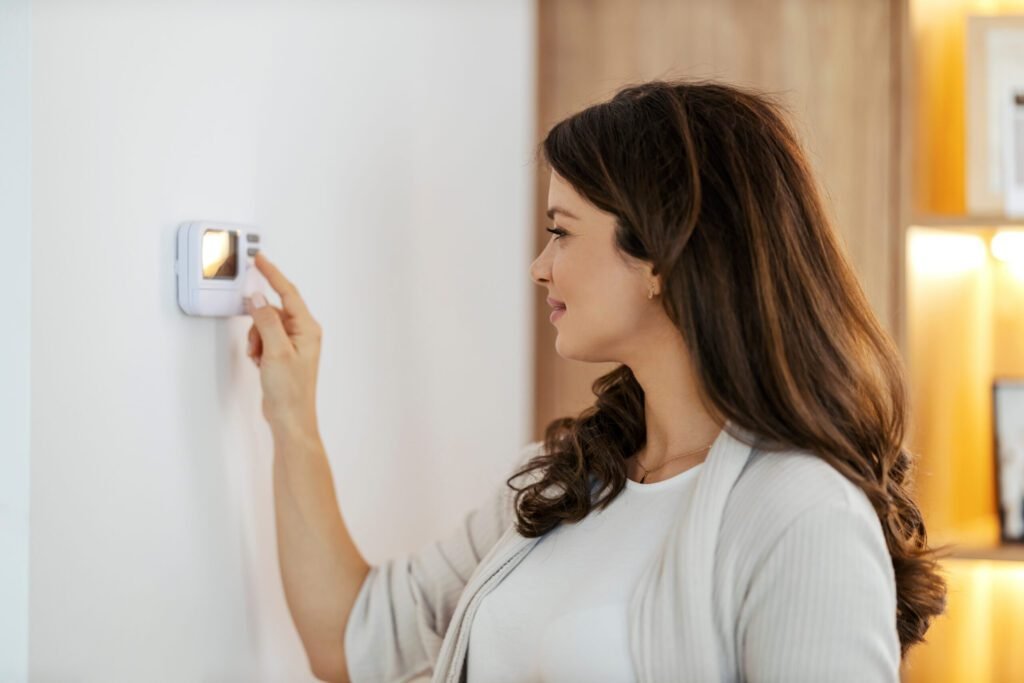As the UAE transitions into its blazing summer months, many residents are not only battling rising temperatures — they’re also facing unexpectedly high electricity bills. With daytime temperatures often exceeding 50°C, air conditioning units are working overtime, and the result is being felt deeply in household budgets across the Emirates.
This surge in power consumption is hardly surprising, yet many families are experiencing sticker shock as bills that once hovered around AED 400 during cooler months have more than doubled. As energy costs rise, so does public concern — but also creativity, resilience, and determination to adapt.
From Comfort to Cost: Why Bills Are Soaring
Air conditioning is a necessity in the Gulf’s desert climate, not a luxury. However, the spike in usage during peak summer months is significant. In fact, air conditioning accounts for up to 70% of household energy consumption in the UAE, especially in older buildings with less insulation and inefficient cooling systems.

With extended hours of indoor activity, including more remote working and schooling from home, the electricity demand has grown steadily. As one resident from Dubai’s Al Qusais district shared:
“Our bill jumped from AED 480 in March to AED 1,070 by May. We haven’t changed our routine drastically, but the AC runs nearly all day now — there’s no escaping the heat.”
This situation is mirrored in Abu Dhabi, Sharjah, and other emirates, where centralized cooling systems — often included in rental contracts — provide little flexibility or control over energy use, especially for tenants.
Real Stories from Across the Emirates

To humanize the issue, it helps to hear directly from the people facing it. In the heart of Dubai Marina, a Pakistani professional working in finance shared:
“The AC in my one-bedroom flat runs 24/7. I’m very careful otherwise — I unplug devices, I only wash laundry once a week, and yet my DEWA bill touched AED 980 last month. I was shocked.”
In Sharjah’s Al Tawoon area, a homemaker expressed concern that their summer expenses had grown significantly due to higher electricity bills and rising food costs:
“We’re a family of five. We try to use fans and only run AC in bedrooms. But with three kids home during the day, keeping everyone cool without racking up bills feels impossible.”
Such stories are increasingly common — and they reflect a wider challenge of managing essential comfort without straining finances.
Understanding the Cost Breakdown
Electricity bills are not just determined by how much is used, but when and how it’s used. Many UAE households are now being billed on slab-based rates, where usage beyond a certain threshold is charged at a higher rate. That means even slight increases in daily consumption can push a household into a higher billing tier.
Other contributing factors include:
- Poor insulation in older buildings causing cool air to escape quickly
- Continuous operation of multiple AC units in multi-room apartments or villas
- Inefficient appliances like outdated refrigerators, water heaters, and lighting
- Lack of awareness about energy-saving behaviors
How Residents Are Responding
Despite the rising costs, many UAE residents are not simply accepting the situation — they’re getting proactive. Here’s how households are fighting back:
1. Setting Smart Thermostat Limits
By adjusting thermostats to 24°C, many families are achieving a balance between comfort and cost. Lowering the temperature even by 1°C can cause a 5–10% increase in cooling energy use. Smart thermostats and timers are being used to switch off ACs when rooms are unoccupied.
2. Switching to LED Lighting
LED bulbs consume up to 90% less power than traditional incandescent lights. Some families have also begun relying more on natural daylight, especially in well-lit apartments and villas.
3. Regular AC Maintenance
Clogged AC filters and dirty coils force units to work harder. Cleaning or servicing units every few months can significantly improve efficiency and lower costs.
4. Limiting Heavy Appliance Usage
Washing machines, irons, and electric ovens contribute to energy peaks. Residents are shifting their use to early morning or evening hours and combining loads to reduce frequency.
5. Using Fans and Curtains
Ceiling fans, though rare in UAE homes, are being added in some households to supplement or reduce AC usage. Blackout curtains and sun-reflective window films are also gaining popularity for reducing heat gain.
Tech and Infrastructure: The Long-Term Outlook
On a broader scale, the UAE government and utility providers like DEWA and ADDC are investing in smarter infrastructure to help households manage energy better:
- Smart Meters: These provide real-time data on electricity usage, helping residents monitor and modify behaviors
- Solar Programs: Dubai’s Shams initiative and other clean energy incentives are encouraging solar rooftop installations in villas and buildings
- Energy Efficiency Ratings: Appliances sold in UAE now include labels showing energy consumption, helping buyers make informed decisions
How Authorities Are Helping
Utility providers have also launched educational campaigns to encourage energy conservation. Tips promoted by DEWA include:
- Keeping thermostats at optimal settings
- Using ceiling fans alongside AC
- Reducing the use of heat-generating appliances during the hottest hours
- Ensuring homes are properly sealed and insulated
Some emirates are exploring rebate programs for energy-efficient appliances or subsidies for retrofitting old homes. These steps signal a future where cooling is more sustainable and affordable.
Beyond the Bills: Rethinking Comfort

For many UAE residents, this summer has become more than just a seasonal challenge — it’s a wake-up call to reconsider what comfort means in a warming world.
Younger residents, in particular, are embracing energy-conscious lifestyles. Social media groups are sharing tips on efficient living, from DIY insulation tricks to comparing smart plug options and best low-power air coolers.
Eco-consciousness is rising as households aim to strike a balance between comfort, budget, and environmental responsibility. What started as a struggle against soaring bills has sparked a community-wide shift toward smarter living.
Final Thoughts: A Challenge That Sparked Change
As electricity bills climb alongside summer temperatures, the challenge for UAE residents is clear: how to stay cool without burning through savings. But in this challenge lies opportunity. Households are adapting, innovating, and becoming more conscious of how they use energy.
There’s growing awareness that small changes — turning off lights, cleaning filters, tweaking thermostats — can lead to big savings. And with the UAE’s continued push for energy innovation, the hope is that future summers won’t feel quite so financially draining.
While some are still struggling, many are rising to the occasion with thoughtful solutions and hopeful mindsets. The soaring summer bills, once a source of stress, are now sparking meaningful shifts that will benefit homes — and the planet — long after the heatwave ends.
Do follow UAE Stories on Instagram
Read More: Stay Cool, Stay Happy—Duoflow Transforms Dubai Summers!













